Publications
Articles, publications, books, tools and multimedia features from the U.S. Institute of Peace provide the latest news, analysis, research findings, practitioner guides and reports, all related to the conflict zones and issues that are at the center of the Institute’s work to prevent and reduce violent conflict.
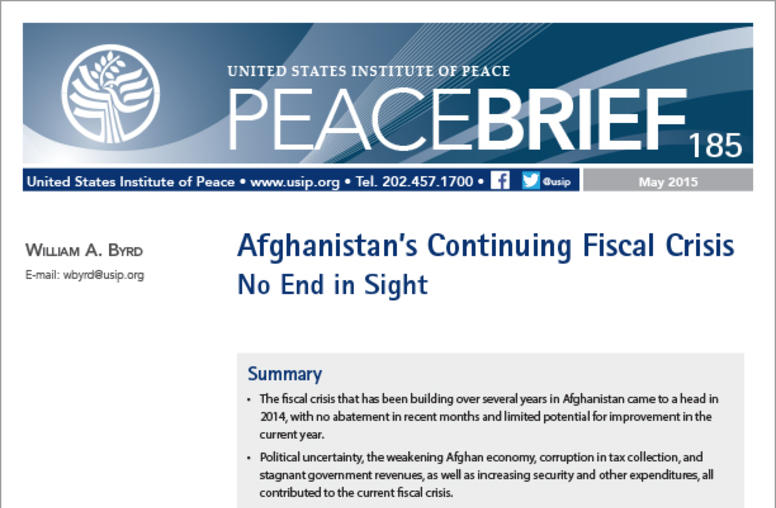
Afghanistan's Continuing Fiscal Crisis: No End In Sight
For several years, Afghanistan’s economy and public finances have worsened, culminating in a full-blown fiscal crisis in 2014. Political uncertainties, the weakening Afghan economy, corruption in tax collection, stagnant government revenues, and increasing expenditures have contributed to the current fiscal impasse. In the absence of bold actions by the Afghan government along with proactive international support to turn around the fiscal situation, the fiscal crisis and its insidious effect...
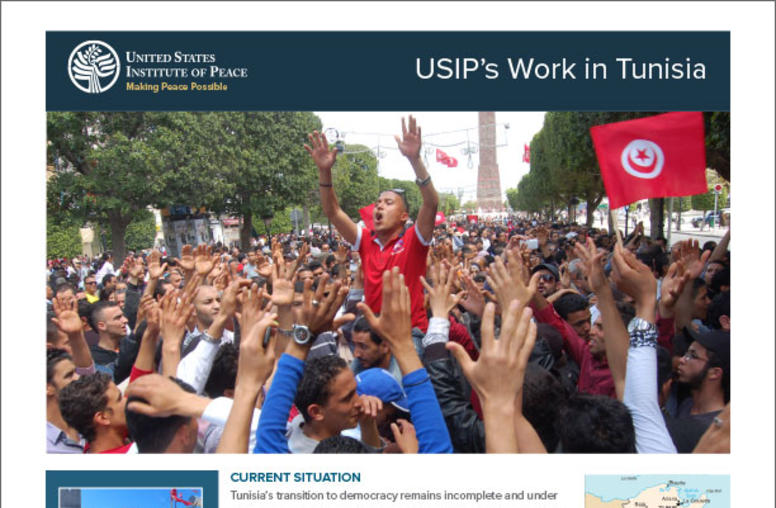
The Current Situation in Tunisia
Tunisia’s transition to democracy remains incomplete and under stress. Since the presidential measures to suspend the parliament, dismiss the government and draft a new constitution were enacted in 2021, socioeconomic conditions have continued to deteriorate, and risks of unrest have increased. Meanwhile, the ambitions of the 2011 revolution for rule of law, accountability, economic prosperity and human dignity are far from being realized. USIP works with Tunisians to improve national and local governance and security, rebuild trust and strengthen civil society.
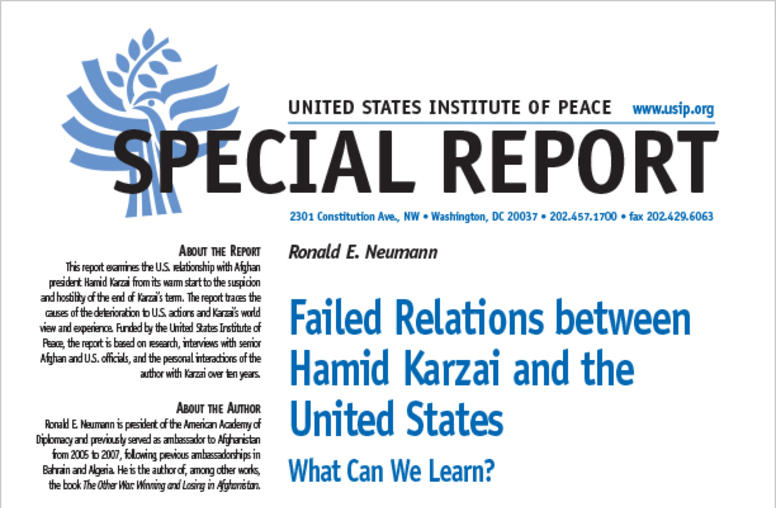
Failed Relations between Hamid Karzai and the United States: What Can We Learn?
The U.S. relationship with Afghan president Hamid Karzai deteriorated from a warm start to suspicion and hostility over the course of Karzai’s term. Intertwining personal and political considerations, this report examines how aspects of the Afghan political culture that is part of Karzai’s life experience, combined with a counterproductive U.S. approach that unnecessarily aggravated the situation, led to a downward spiral of miscommunication and mistrust that continued to the end of Karzai’s ...
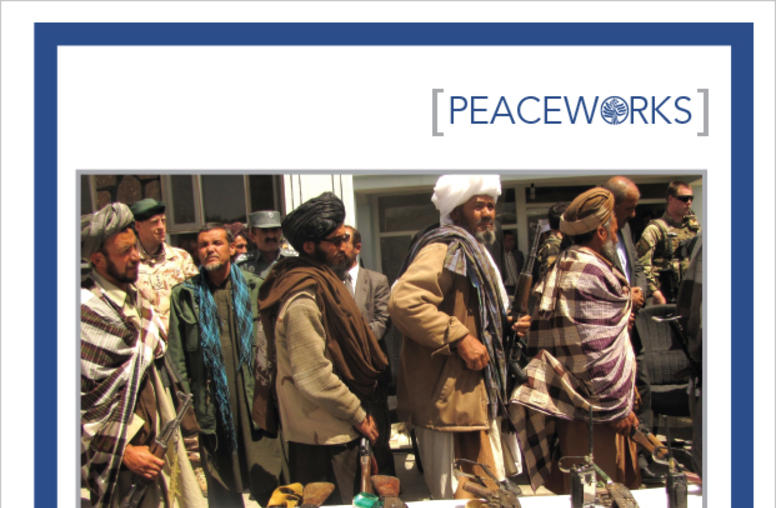
The Politics of Disarmament and Rearmament in Afghanistan
Four international programs designed to disarm, demobilize, and reintegrate militias in Afghanistan since 2001 have largely failed. They have instead largely reinforced existing power relations. Perhaps their gravest impact has been to deepen patterns of political exclusion that underlie much of the violence that have driven support for the insurgency. Demilitarization, this report makes clear, is only part of a wider political process, both with Taliban leaders and between pro-government fac...
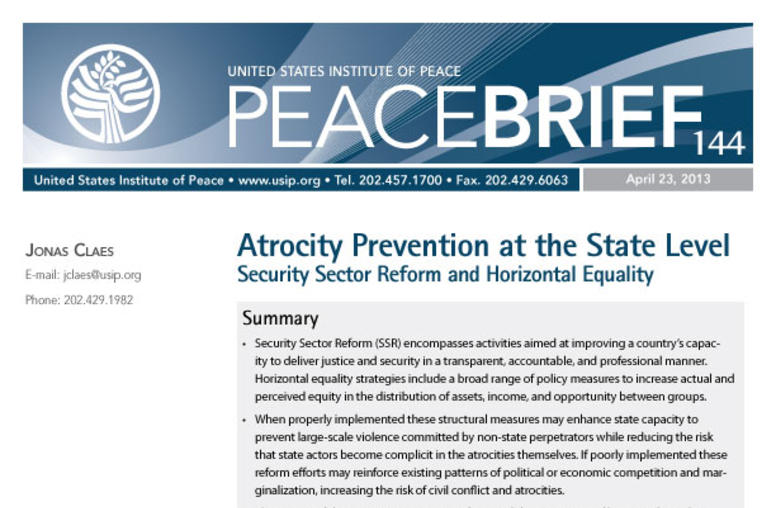
Atrocity Prevention at the State Level
In “Atrocity Prevention at the State Level,” Jonas Claes examines how states can mitigate the internal risk of atrocities through security sector reform and improved horizontal equality.
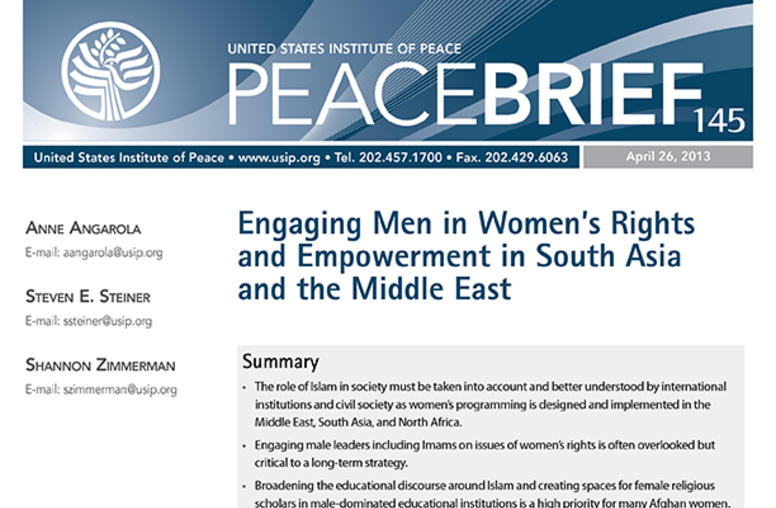
Engaging Men in Women’s Rights and Empowerment in South Asia and the Middle East
A new Peace Brief details the lessons learned and best practices on engaging men in support of women’s rights and empowerment in South Asia and the Middle East. It is based on a November 2012 forum organized by USIP’s Center for Gender and Peacebuilding.
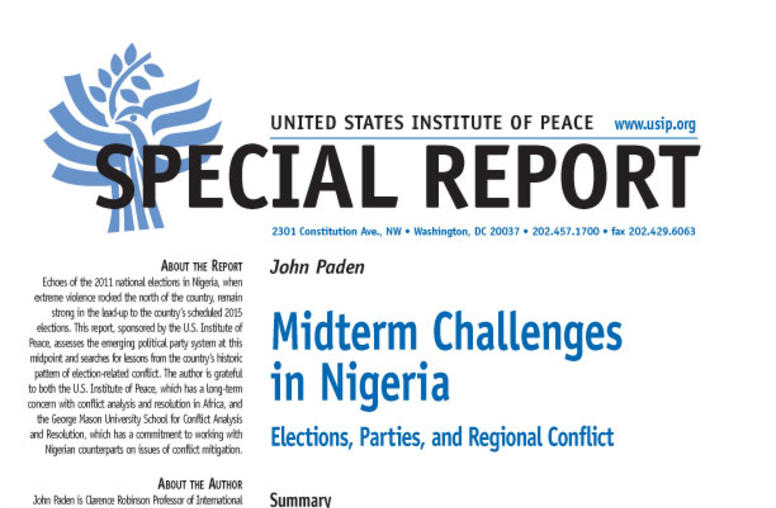
Midterm Challenges in Nigeria
At the midpoint between presidential elections in Nigeria, the country’s leaders need to take stock of the conflict resolution mechanisms in place to deal with the political divide between north and south, Muslim and Christian, and to prevent electoral violence in 2015. Depending on how it contributes to regional balance, power sharing, and perceptions of fair play, the coming phase of party coalition building may well determine future national stability.
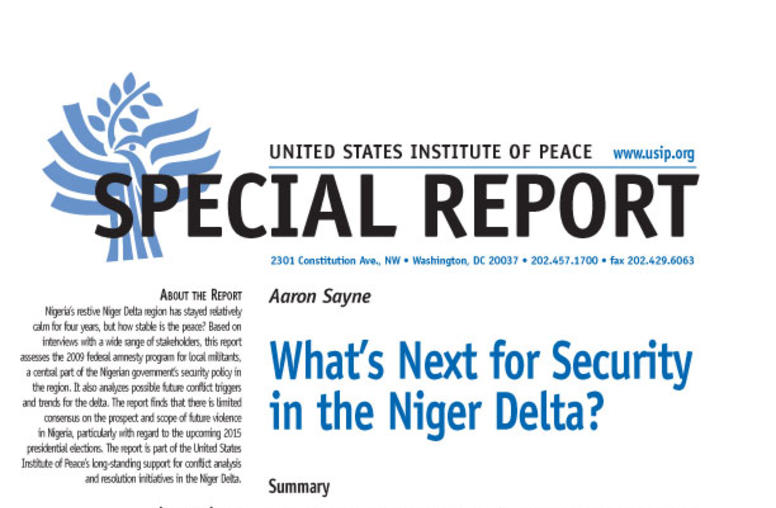
What’s Next for Security in the Niger Delta?
The Nigerian government’s 2009 amnesty of militants in the Niger Delta dramatically reduced the violence that had plagued the region and restored preinsurgency levels of oil production. However, many of the problems that sparked violent confrontations remain unaddressed. This new Special Report draws on the views of many sectors of Nigerian society to gauge whether peace on the delta can be sustained.
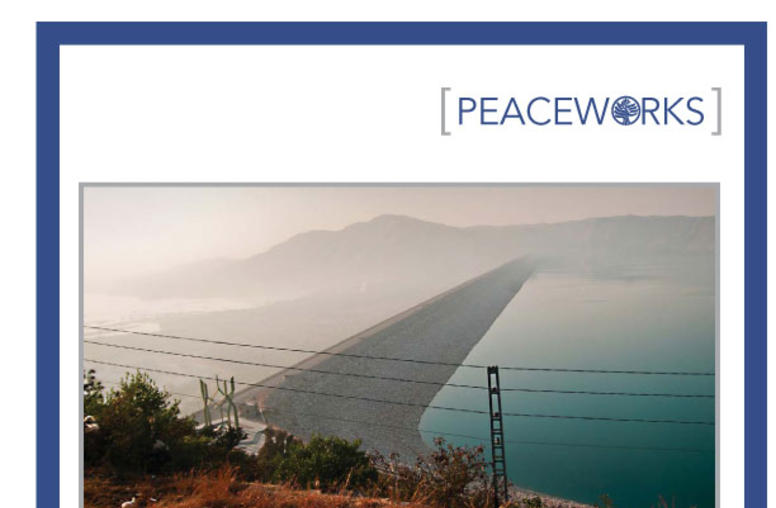
Understanding Pakistan's Water-Security Nexus
Pakistan faces unprecedented stresses on its water resources from inequitable distribution, population growth, urbanization, and shifts in production and consumption patterns, and these water problems exacerbate local tensions. Solutions to Pakistan’s water crisis must focus on addressing unsustainable practices and gross mismanagement, say the authors of this new report.
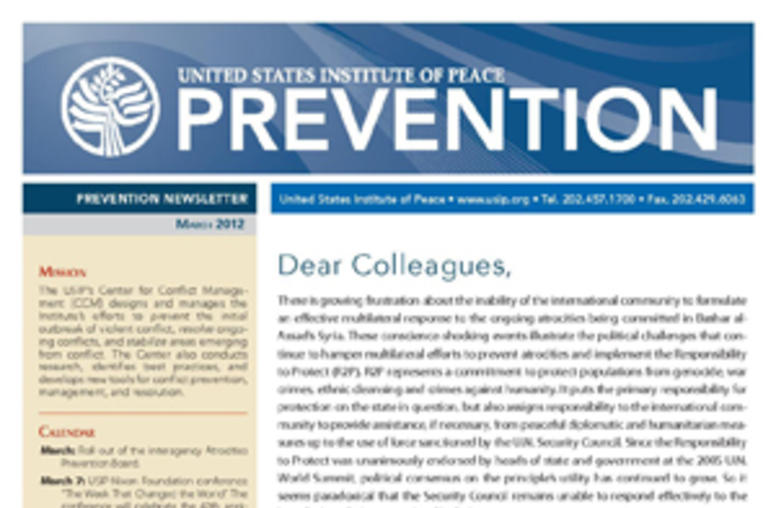
USIP Prevention Newsletter - March 2012
The March 2012 Prevention Newsletter features a spotlight on U.S.-Pakistan Relations: The year 2011 saw a progressive deterioration in the U.S.-Pakistan relationship. But despite the fact that mutual mistrust is probably at an all time high, there is no appetite to allow the relationship to rupture.